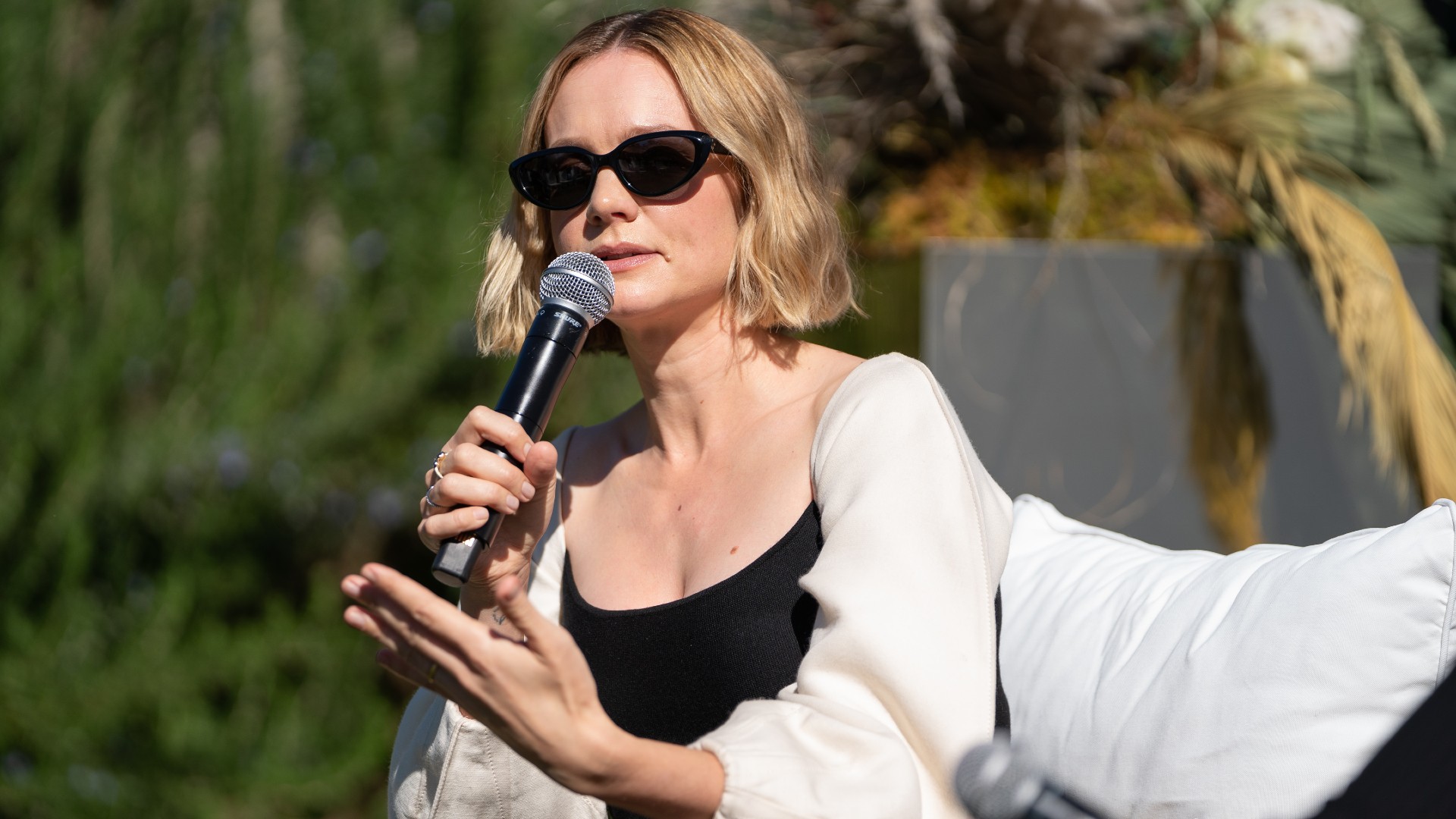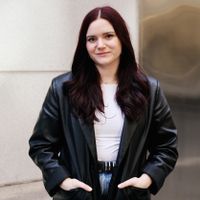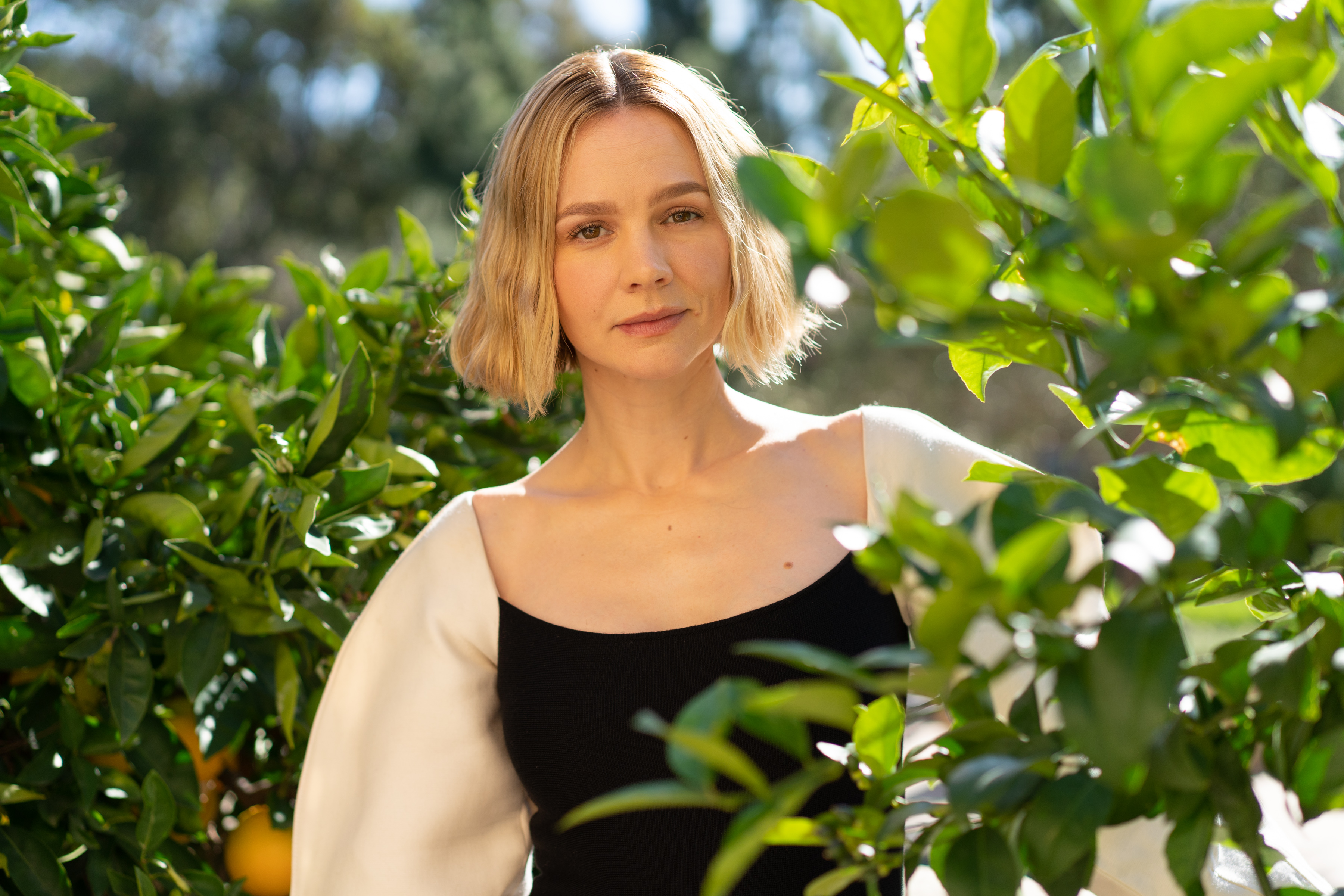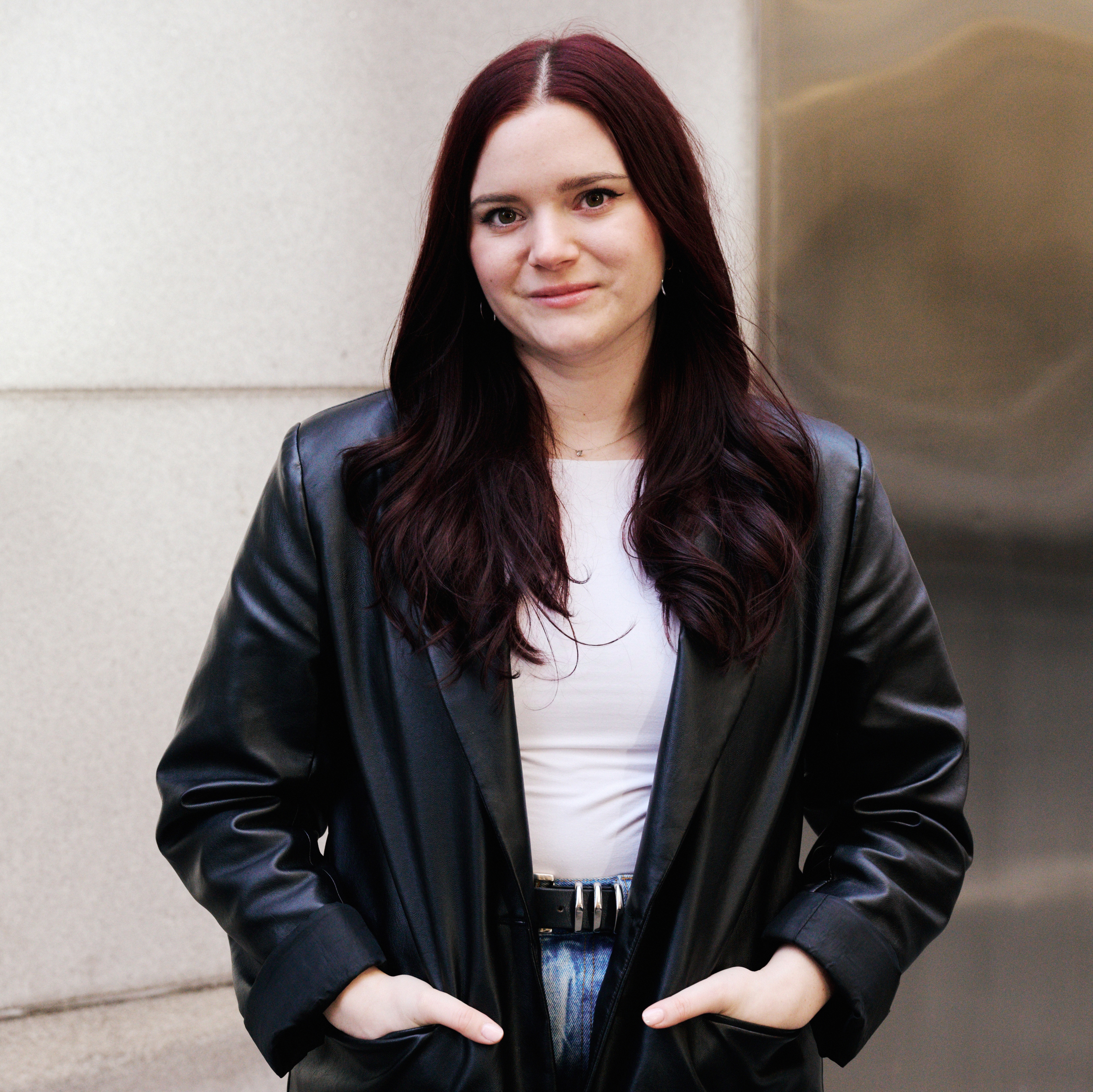Carey Mulligan on Starring in 'She Said' and the Story's Impact on Hollywood
The actress sat down with journalist Lisa Ling at Marie Claire's 2022 Power Trip summit.


During this year’s Power Trip, Marie Claire’s annual conference that brings together some of the biggest and brightest women leaders and execs, Carey Mulligan sat down for a gripping conversation with journalist Lisa Ling. On November 15, the two chatted about Mulligan’s latest film, She Said, which dives into the story behind The New York Times investigative journalists Jodi Kantor and Megan Twohey’s 2017 exposé on Harvey Weinstein.
To Mulligan, taking on the role of Twohey in a story that is still ongoing (Weinstein’s sexual assault trial is currently taking place in L.A.) was a challenge unlike anything she’s done before. "[Twohey’s] the most impressive woman. She's been a journalist for, you know, decades. She's incredibly intelligent,” Mulligan said. “And so we weren't just taking on playing real people. We were taking on people who were sort of essentially superheroes to us. So it was definitely a daunting prospect.”
During their conversation, the actress not only explained what makes She Said such a timely film but also tackled the culture of sexual exploitation of women in Hollywood and across the globe. Read on for highlights from Mulligan, below, then catch She Said in theaters today.
On developing a relationship with Megan Twohey:
“I was [intimidated], but in a way she was just so open, she was so generous about her life and the investigation, and I think she also understood that, you know, the film is a lot bigger than all of us. It's bigger than Megan, it's bigger than The New York Times.”
“It's really about the survivors. It's about them, what it took for them to come forward and go on the record. And… I think we forget what power that Weinstein held. You know he held this enormous power for decades. And I think to tell one person a traumatic event that's happened to you in your past takes an enormous amount of courage. But...to be able to tell a journalist, and for that journalist to, you know, for you to agree to tell the world that, I think it's just astonishingly courageous. So the film is really about that. It's about this collective, this group of women and how they came together. A really small group of women, really, and the impact that that had.”
On how climate of Hollywood has changed:
Get exclusive access to fashion and beauty trends, hot-off-the-press celebrity news, and more.
“There was a sense that you just had a smaller voice. And for a long time I sort of thought, Well, that's ‘cause I've just started. Maybe I'm just… Well I'm only 21… And then I was like, Well, wait, I'm 30 now, I should feel a bit better or I should feel that my voice matters a bit more. So I think for me it was more about my... what I held in the room as it related to my male counterparts and less about—‘cause I was lucky—just less about the other side of things.”
“But the change I think has been big, you know, not just in people talking more openly about pay disparity, but also about… There are concrete things now. There are anti-harassment workshops, there are intimacy coordinators, and Zoe Kazan—who's in the film with me—we talk about how insane it is that we never had intimacy coordinators. That you were just put in a room with a man that you didn't really know, maybe didn't like, and just told to sort of get on with it. You know, it's like we would never punch someone in a stunt without a stunt coordinator… And ultimately all of this comes down to women should be able to go to work and work and not have to deal with anything else."

Mulligan spoke with journalist Lisa Ling during Marie Claire's annual Power Trip summit.
On the reaction from women who have seen She Said:
“The reaction's been amazing… We've been lucky enough and privileged enough that many survivors are involved in the film and have been consulted from the script: Zelda Perkins, who's in this film, who's played by Samantha Morton; Ashley Judd, who is in the film, and appears as herself in the film. In New York, we walked out after the [premiere], Megan [Twohey] and Jodi [Kantor] came on stage, and the whole audience just… it was like Bruce Springsteen had walked out. It was the coolest thing. Everyone just went crazy. And then Ashley walked out and it was just, everyone was in tears. The whole audience was standing up. And to see her being honored like that, because the courage that it took for Ashley to speak, I think is just immeasurable, you know? (And for everyone who came forward, whether they went on the record or not, again.) But Ashley was the first actor to go on the record in that first article. And the dam broke after that. But she really put everything on the line. So to see the audience respond to her was just amazing.”
On what it’s like to play someone as impactful as Twohey:
“I don't know how Tarana Burke or Megan [Twohey] or Jodi [Kantor] or Zelda [Perkins] or Ashley [Judd]... I don't know if they'll ever be able to really understand the impact of what they did. You know, maybe they do, but I just think the impact of it has been so seismic and definitely not just within our industry. Within our industry, lots of things have changed. I mean, we've been asked a lot in the press recently about the impact of the movement and where we are. And Zoe and I would say, We're actors. We're not sociologists. We don't really know. But as a woman in the world, I think you see things are different."
"However, you only have to open a newspaper to see that there's... Women are still living through horrific situations all over the world. So, clearly, this is never going to be an overnight fix. But I can't imagine how they compute what they've done. It's just astonishing. And the achievement is just so huge and the impact it's had is so huge and will continue. So how do you measure that? I just can't imagine. To play someone like that is just... The whole thing is a real privilege.”
On if Carey approaches the industry differently after staring in She Said:
“There are new standards that are set within our industry, and I think that part of our responsibility—if you've been around doing it for a bit longer—is to really keep an eye on that.”
She continued: “You [have] been around for a bit longer, so then your job is to look after everyone, to keep an eye out for other people across the cast and the crew. And I think what the #MeToo movement did, ultimately...was the actresses who had been pitted against each other historically, forever, just went, Oh, why? What? So them coming together I think was really powerful.”

Mulligan said, "You only have to open a newspaper to see that there's, you know, women are still living through horrific situations all over the world. So clearly this is never gonna be an overnight fix."
On how She Said has been different from other films she's worked on:
“First of all, it feels so close. It's so relevant. It feels raw, in a way. But at the same time, these are age-old issues that have affected women for millennia. So in a sense, there's nothing really new except we're seeing women stepping forward and doing incredible things. I did a film seven years ago about the suffragettes and what they gave us and I think there's a through-line to what these survivors gave us. They've given us this incredible platform now and this landscape where talking about these issues is possible."
“That's why the film feels like there's a timelessness to a very contemporary film, because these issues are things that our mothers, our grandmothers, our great-grandmothers all dealt with. The difference being that what these women did, what Megan and Jodi did, and the survivors, was that they gave us this new landscape where talking about things that had happened to women, have happened to women and to men... I think it's opened up a platform for that as well, that it's possible to talk about this stuff. That there's room to should you choose to. I think that's the remarkable gift they've given all of us.”

Brooke Knappenberger is the Associate Commerce Editor at Marie Claire, where she specializes in crafting shopping stories—from sales content to buying guides that span every vertical on the site. She also oversees holiday coverage with an emphasis on gifting guides as well as Power Pick, our monthly column on the items that power the lives of MC’s editors. She also tackled shopping content as Marie Claire's Editorial Fellow prior to her role as Associate Commerce Editor.
She has over three years of experience writing on fashion, beauty, and entertainment and her work has appeared on Looper, NickiSwift, The Sun US, and Vox Magazine of Columbia, Missouri. Brooke obtained her Bachelor's Degree in Journalism from the University of Missouri’s School of Journalism with an emphasis on Magazine Editing and has a minor in Textile and Apparel Management.